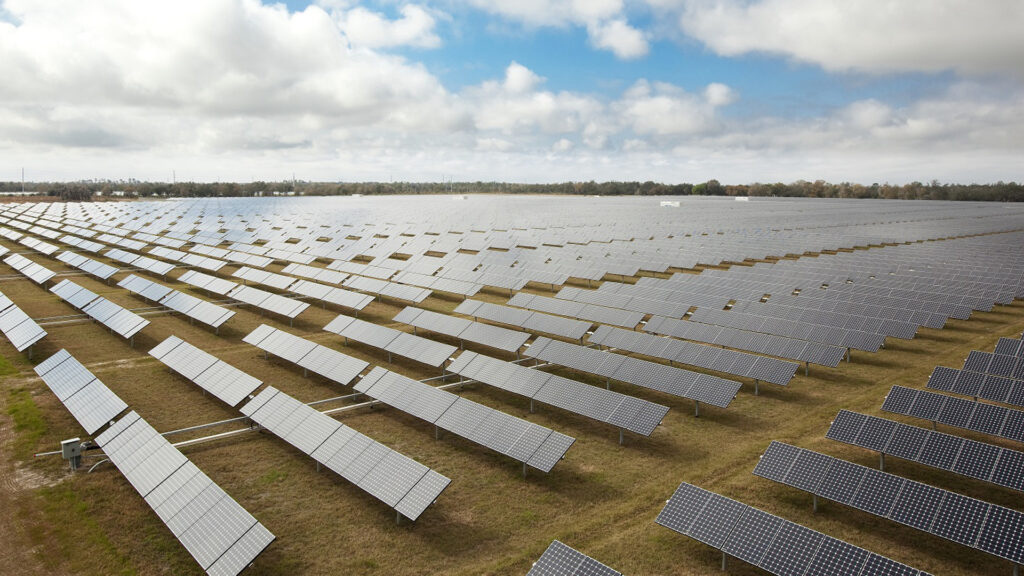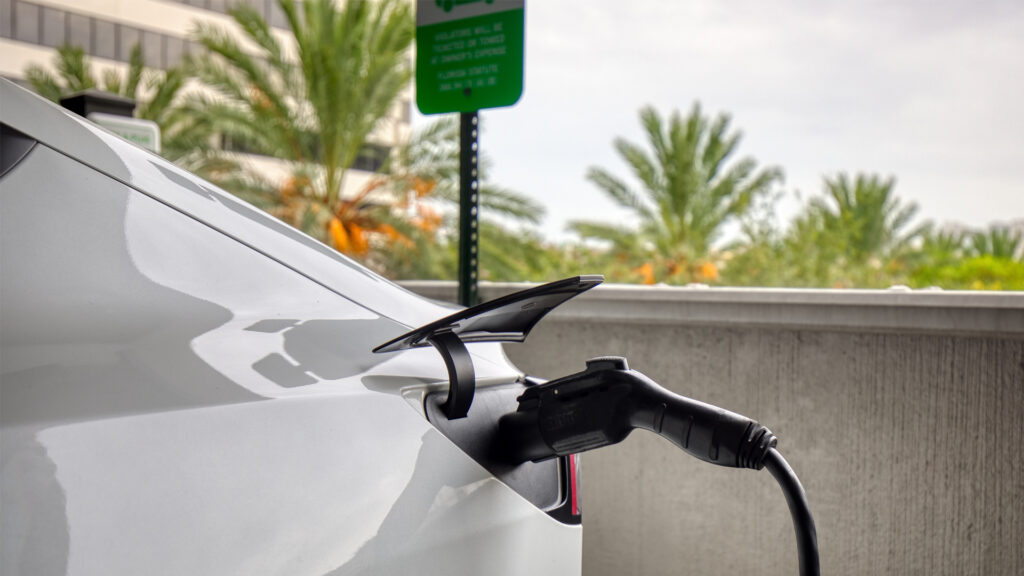By Mia McCormick, Environment Florida
The world is moving toward renewable energy sources and away from fossil fuels. Just last week at an international climate summit known as COP28, 115 nations, including the United States, pledged to double energy efficiency and triple renewable energy capacity by 2030. This ramp up toward renewable energy joins a wave as more than 12 states have committed to 100% clean energy standards over the next decade or so.
Environment Florida Research & Policy Center recently released its updated Renewables on the Rise dashboard with a state-by-state breakdown of how the key technologies that will allow us to become increasingly reliant on renewable energy are growing. The Sunshine State is a leader in two key renewable energy technologies: solar and electric vehicles.

Today, 5% of the energy that we consume as a state comes from solar, wind or geothermal power, representing a major leap from where even a decade ago, but only scratching the surface of Florida’s renewable energy potential. Florida has the potential to make big strides toward clean energy over the next few years.
Not surprisingly, solar is a bright spot. In 2022 we were third in the nation in solar generation, producing enough energy to power more than 1.3 million homes for a year. That’s 48 times more power than we produced from solar just 10 years ago. We continued that strong trend in the first half of 2023 with Florida topping all states in solar installations, according to the Solar Energy Industries Association.
Utilities continue to be the largest investor in solar energy and Florida utilities are full steam ahead when it comes to solar generation and battery storage capacity. If you’ve taken a road trip across the state recently, chances are you’ve passed by one of the many solar “farms.” These large arrays channel hundreds of megawatts into battery storage that can be used as back-up power at times when the grid may need it the most. State policy that favors residents and business, not just utility companies, would help build communities with cleaner energy outputs and more energy resiliency than we currently have.

Electric vehicles and charging ports are also areas where our state is in the top three in the nation. Florida drivers won’t be surprised by this: Electric vehicles are a common sight on our roads and last year we bought more EVs than any other state except California.
More than 67,000 EVs were purchased here and more than 8,000 charging ports were installed around the state to power them. There are close to 300,000 EVs registered in Florida with a recent increase in commercial vehicles as automakers release more light, medium and heavy-duty electric models.
Utility companies are already installing DC Fast Chargers aimed at providing power to larger electric fleets. These fast chargers can add 60-80 miles to an EV in just 20 minutes. The Orlando Utilities Commission installed 21 DC Fast Chargers at a hub on Robinson Street downtown, as the city prepares for large-scale fleet electrification by 2030.
Florida has a long way to go to catch states such as Iowa, South Dakota and Kansas, which generate 70% or more of their power through wind, solar and geothermal energy sources.
Here are four steps Florida can take to keep renewables on the rise:

- Set an ambitious goal for generating an increasing amount of the state’s electricity needs from clean, renewable energy goals. Environment Florida supports House Bill 193, filed by state Rep. Anna Eskamani (District 42), which would set a 100% renewable energy goal by 2050.
- Continue to ensure Floridians who install rooftop solar receive fair payment for their excess electricity from the utilities, and adopt policies to encourage more Florida homes and businesses to install batteries alongside their solar panels to save their electricity for use when the sun goes down.
- Build larger arrays of solar along state highways, like Georgia has already done, or over parking lots and big warehouses.
- Invest in more charging infrastructure to meet growing consumer demand for electric vehicles.
Mia McCormick is an advocate for Environment Florida.
If you are interested in submitting an opinion piece to The Invading Sea, email Editor Nathan Crabbe at ncrabbe@fau.edu. Sign up for The Invading Sea newsletter by visiting here.



